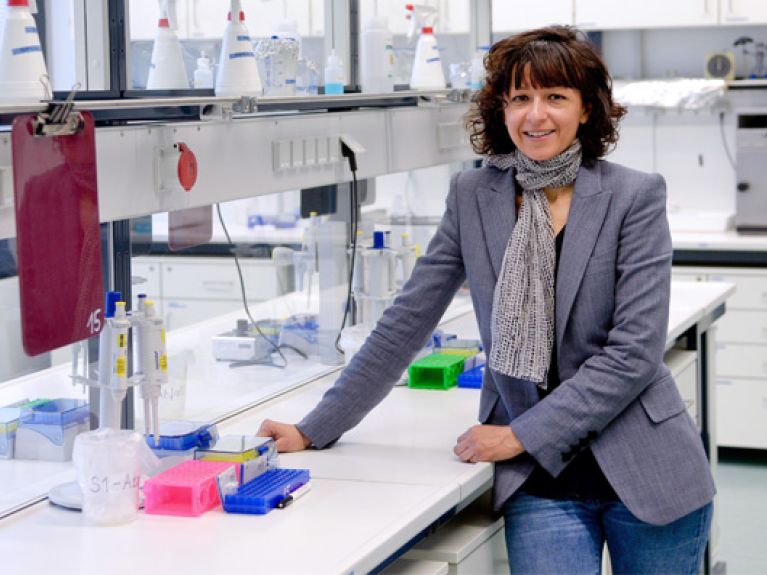2016 Leibniz Prize winners
In 2016 the most highly endowed German research prize goes to ten international researchers.

The award of up to 2.5 million euros is intended to improve their working conditions and develop research opportunities. Here are details of the individual researchers and their projects.
Professor Dr Frank Bradke of the German Center for Neurodegenerative Diseases in Bonn examined how nerve fibres can be encouraged to grow again in people with spinal cord injuries.
Professor Dr Emmanuelle Charpentier of the Max Planck Institute for Infection Biology in Berlin is conducting research into a bacterial defence system against viruses – a groundbreaking development in the life sciences.
Professor Dr Daniel Cremers of the Technische Universität München (TU Munich) is one of the world’s leading researchers in the fields of image analysis and pattern recognition. Using camera systems and computers, he is producing artificial models of human vision.
Professor Dr Daniel James Frost of the University of Bayreuth is conducting research into the effects of extremely high pressures and temperatures on planets. His research focuses on the earth’s mantle and its oxidation level, which has a major influence on our planet’s water and carbon cycle.
Professor Dr Dag Nikolaus Hasse of the Institute of Philosophy at the University of Würzburg has developed analytical techniques and used them to demonstrate the lasting effect of cultural exchange between Orient and Occident in early modern Europe.
Professor Dr Benjamin List of the Max Planck Institute for Coal Research in Mülheim/Ruhr has pioneered the development of new methods of using natural substances as catalysts to purify water in regions with scarce water resources.
Professor Dr Christoph Möllers of Humboldt-Universität zu Berlin is enriching legal research with his outstanding work on a theory of democratic legitimacy in the field of constitutional law.
Professor Dr Marina V Rodnina of the Max Planck Institute for Biophysical Chemistry (Karl Friedrich Bonhoeffer Institute) in Göttingen has identified proteins that play an important role in defence against bacteria.
Professor Dr Bénédicte Savoy of the Institute of Art Studies and Historical Urban Studies at Technische Universität Berlin conducts research into Franco-German relations in the area of art history.
Professor Dr Peter Scholze of the Mathematical Institute at the University of Bonn is one of the world’s leading mathematicians who answered fundamental questions in geometry while he was a young researcher.
www.dfg.de/gefoerderte_projekte/wissenschaftliche_preise/leibniz-preis

